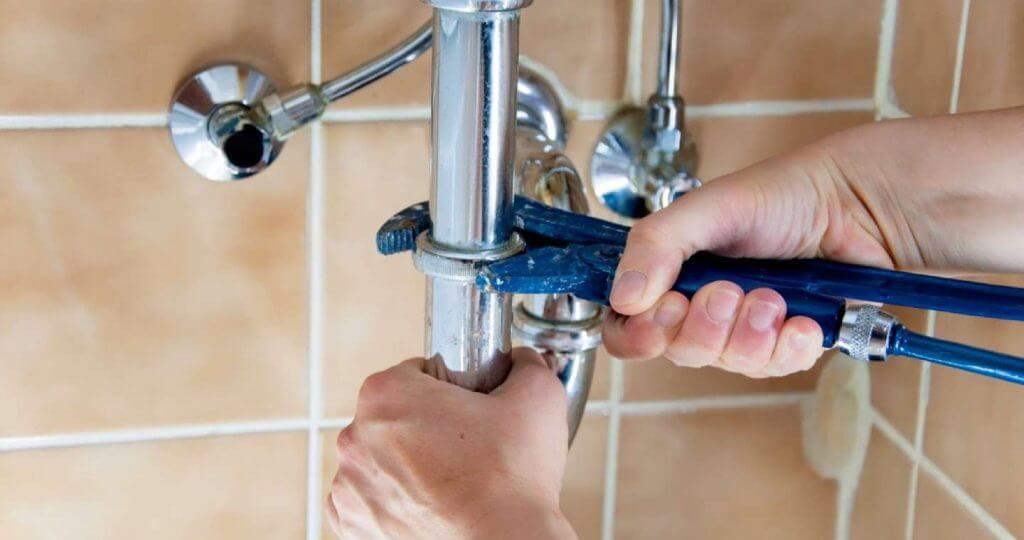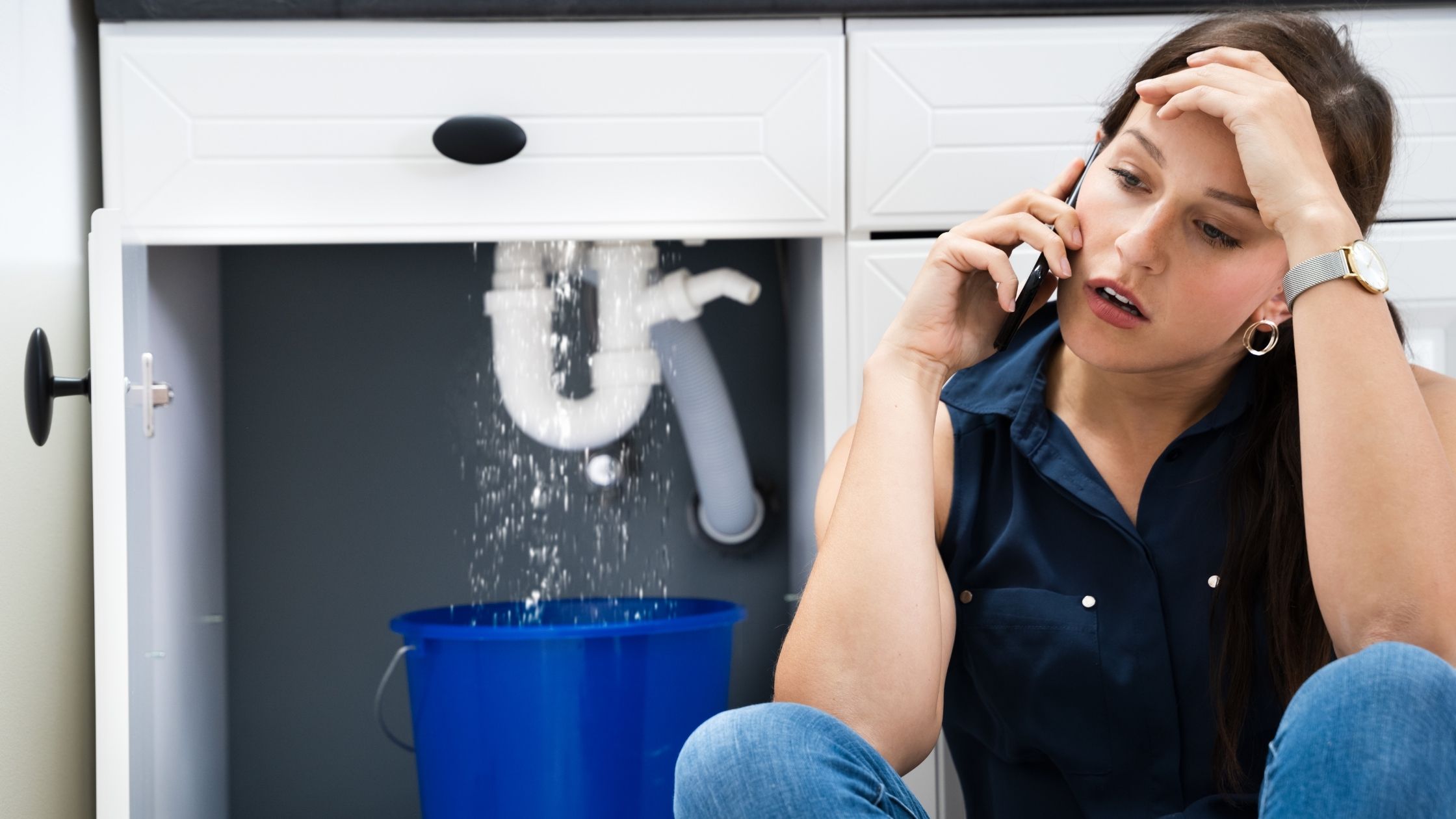The 5 Principal Triggers of Water Leaks
The 5 Principal Triggers of Water Leaks
Blog Article
What are your thoughts and feelings on How to Find and Prevent Water Leaks in Your Home?

"Be cautious of little expenditures. A tiny leakage will sink a wonderful ship." - Benjamin Franklin.
He could not have actually been much more appropriate because water leaks in our houses lead to a waste of resources, enhancing our water bills. Although this rise may seem negligible initially, it can result in substantial expenses that can damage your financial institution. In addition to an increase in costs, water leaks additionally create undesirable organic growth, structural damage, as well as also electrical threats.
Identifying if you have a water leakage isn't always easy due to being unable to see most of the pipework in your home. Nevertheless, If you have had a boost in your water costs lately, noticed water spots on walls as well as ceilings, scented lousy odor, etc. You may want to consider asking for plumbing solutions to get it looked into.
There are a number of sources of water leaks, and we have compiled the usual reasons listed below. Inspect to see if you have actually had related issues in your home recently.
Damaged pipeline joints
Pipe joints are the parts of our plumbing system where the pipes attach. They are the weakest point of our plumbing system. Consequently, they are a lot more at risk to degeneration. It is essential to note that although pipelines are made to stand up to stress as well as last for some time, they weren't developed to last permanently; consequently, they would weaken with time. This deterioration can result in splits in plumbing systems. An usual indicator of damaged pipe joints is extreme noise from taps.
High water pressure
You saw your home water pressure is higher than usual but then, why should you care? It's out of your control.
It would be best if you cared since your ordinary water pressure must be 60 Psi (per square inch) and although your home's plumbing system is created to stand up to 80 Psi. An increase in water pressure can place a pressure on your residence pipes and lead to splits, or worse, ruptured pipes. Obtain in touch with a specialist regarding managing it if you ever before observe that your residence water stress is greater than common.
Rust
As your pipework grows older, it obtains weaker and extra at risk to corrosion after the constant passage of water via them, which can eat away at pipelines as well as cause splits. A visible sign of rust in your house plumbing system is discoloration and also although this may be difficult to discover because of many pipes hidden away. We advise doing a regular check-up every couple of years as well as alter pipelines once they are old to ensure a sound plumbing system
Obstructed drains pipes
Food fragments, dust, and also grease can create blocked drains pipes and obstruct the passage of water in and out of your sink. Boosted pressure within the seamless gutters can trigger an overflow and also finish up splitting or rupturing pipelines if undealt with. To stay clear of blocked drains in your house, we suggest you to stay clear of putting fragments down the drain and also regular cleaning of sinks.
Busted seals
Another reason for water leaks in houses is broken seals of residence appliances that utilize water, e.g., a dishwashing machine. When such devices are installed, seals are set up around water adapters for very easy flow of water with the machine. A damaged seal can create leakage of water when in usage.
With little or no expertise of plumbing, comprehending your residence's plumbing system sufficient to repair several of these issues (without effect) can be a problem. Connect with plumbing specialists in Pittsburgh, Providence, Rochester, and also environ today, as well as they'll make those problems go away.
He couldn't have been more appropriate due to the fact that water leakages in our residences result in a waste of resources, boosting our water expenses. If you have had a boost in your water expenses recently, saw water stains on ceilings and wall surfaces, smelt lousy odor, etc. A boost in water stress can put a pressure on your residence pipelines and also lead to splits, or worse, ruptured pipelines. Another cause of water leakages in homes is damaged seals of house devices that use water, e.g., a dishwashing machine. When such devices are mounted, seals are installed around water adapters for simple passage of water via the equipment.
5 TIPS IN DETECTING A WATER LEAK IN YOUR HOUSE
Water leaks can be hard to find in your home, yet they can be so common. We rely on water every day in our home, which is why a leak can cause big problems. By detecting them early, you can save money and further damage, getting the problem fixed as soon as possible. Here are 5 tips to help you detect a water leak in your home, so you can contact a plumber straight away and get the issue sorted.
Check your water meter
Many people underestimate the value of the water meter in their home. It can be one of the best ways to tell if you have a leak early on, so you can get on top of it before issues start arising. Start by turning off all the water in your home: taps, washing machine, dishwasher, etc. Now take a look at the meter – if it’s still changing with everything turned off, it’s likely you have a fast-flowing leak that you need to get on top of straight away. If nothing changes, then leave your meter for an hour or two and come back to it. Did it change in this time? It’s likely you have a slower leak, which isn’t as urgent but still handy to get fixed so it doesn’t become a bigger problem.
Keep an eye on your bill
Another good way to detect a leak in your home is by keeping an eye on your water bill. It helps if you have a past bill from the same period of time. You can compare like for like and determine whether your water usage has increased significantly. If it has, there may be a leak in your system that you haven’t picked up before. A professional plumber can check through all of your pipes and determine where it is coming from.
Look for damage
If you have a leak inside your home, you will notice damage over time. Take a look at your showers and bathtubs and note whether any of the tiles surrounding the area seem to be discoloured or damaged in any way. There may be water stains, mould or peeling material that has resulted from a build up of moisture over time. Make sure you take a look under sinks at the back of cupboards that don’t get accessed regularly. This is where damage can go unnoticed and build up over periods of time.

Hopefully you enjoyed reading our topic on How to Find and Prevent Water Leaks in Your Home. Thanks for taking time piece of content. Appreciated our post? Please share it. Let others locate it. I value reading our article about How to Find and Prevent Water Leaks in Your Home.
Effective solutions await. Report this page